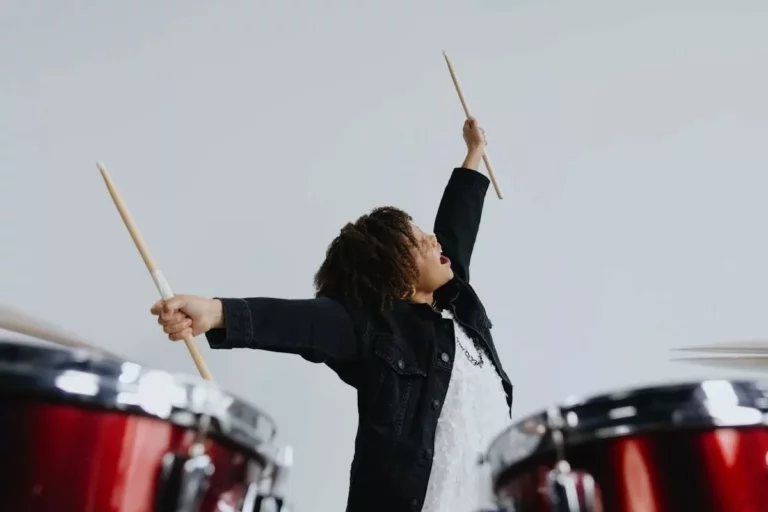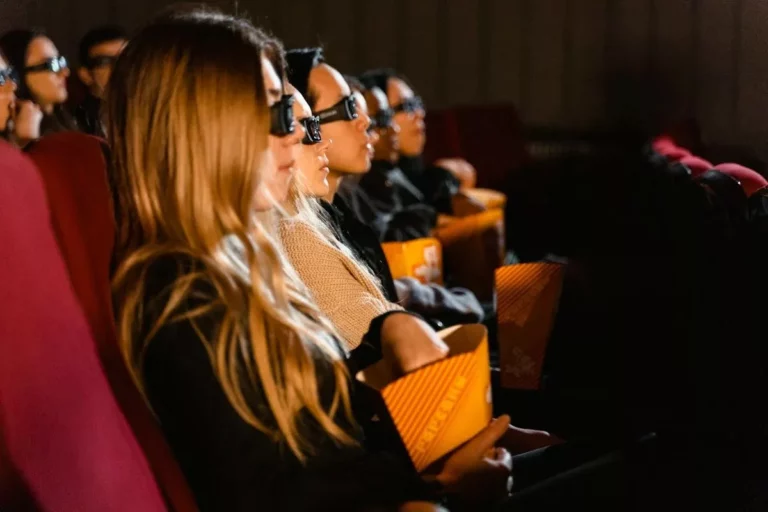In the fast-paced world of entertainment, crafting captivating event trailers, teasers, and reveals has become essential for attracting audiences and generating buzz. Have you ever wondered why some events sell out within minutes while others struggle to garner attention? The secret often lies in the quality and creativity of their promotional content. A well-produced trailer can transport potential attendees into the heart of the experience, while engaging teasers create initial intrigue that keeps the audience talking. As event organizers strive to capture the spotlight, mastering these elements is crucial for standing out in a crowded market. In this blog post, we will delve into the significance of event trailers, teasers, and reveals, and explore strategies to make them as effective as possible.
Understanding Event Trailers, Teasers, and Reveals
Event trailers, teasers, and reveals play a crucial role in the entertainment industry, transforming the way audiences engage with upcoming experiences. These promotional tools serve distinct purposes but work harmoniously to generate excitement and anticipation.
Definition of Event Trailers
Event trailers are the cinematic snippets designed to provide a sneak peek into a larger entertainment experience, whether it’s a concert, movie, or festival. They are typically longer than teasers and aim to showcase key features, personalities, and the overall atmosphere of the event.
What Are Teasers?
Teasers are short, engaging clips that hint at what’s to come without giving too much away. Their brevity is critical; they are designed to spark curiosity and intrigue, prompting audiences to seek out more information about the event.
The Concept of Reveals
Reveals are the grand moments where significant details about an event are disclosed, often following a build-up from trailers and teasers. A successful reveal can make or break an audience’s anticipation.
The Importance of Event Trailers in Marketing
Effective marketing is key to drawing in an audience, and event trailers play an essential role in this strategy. Here are some reasons why:
- Building Anticipation: Well-crafted event trailers generate buzz and excitement, leading to heightened interest in the event.
- Setting the Tone: A trailer sets expectations on the type of experience attendees may have, aligning with the event’s theme.
- Creating a Connection: By showcasing artists or performers, trailers foster a sense of personal connection with the audience.
Crafting Effective Teasers
When developing teasers, consider the following key elements to ensure they capture attention:
- Brevity: Keep it short and sweet. Teasers should be quick and impactful, typically ranging from 15 to 30 seconds.
- Emotional Triggers: Engage the audience emotionally to create a more profound interest in the event.
- Intrigue: Leave attendees wanting more with clever cuts and hints rather than revealing too much.
Revealing The Big Surprise
The reveal is the climax of the marketing strategy. It builds on the previous marketing materials, ensuring the audience is ready for the big announcement. To maximize the impact of your reveal:
- Create a Sense of Urgency: Use countdowns or limited access to generate buzz.
- Leverage Social Media: Share the reveal across platforms for maximum reach.
- Align with Audience Expectations: Ensure the reveal meets or exceeds the excitement built through trailers and teasers.
Incorporating successful trailers, teasers, and reveals not only boosts audience engagement but also enhances overall event attendance. For an in-depth exploration of entertainment marketing strategies, check out Eventbrite for the latest insights and tips.
Best Practices for Creating Event Trailers
Creating powerful event trailers is essential for ensuring that your audience is not only informed but also excited about the upcoming experience. To craft an effective event trailer, follow these best practices:
Tips for Storytelling in Trailers
- Define Your Narrative: Each trailer should tell a concise story. Outline the main themes and messages you want to convey.
- Highlight Unique Features: Focus on what sets your event apart. Showcase exclusive acts, unique locations, or special experiences to make it stand out.
- Engage Emotionally: Use visuals and music that resonate with your audience’s emotions, creating a feeling of anticipation and connection.
Visual and Audio Elements That Captivate
- High-Quality Visuals: Invest in professional videography to ensure your trailer’s visuals are striking and polished.
- Compelling Soundtrack: A fitting audio track enhances the emotional layers of the trailer. Choose music that complements the event’s vibe.
- Dynamic Editing: Use quick cuts and engaging transitions to maintain viewer interest and build excitement.
Call to Action: Encouraging Audience Participation
- Clear Information: Make it easy for viewers to find details about tickets, dates, and locations by including text overlays in your trailer.
- Social Engagement: Encourage viewers to share the trailer on their social media profiles, expanding the reach and creating further excitement.
By mastering these best practices for creating event trailers, you can effectively draw in your audience and elevate anticipation. For additional insights on marketing strategies specific to events, consider exploring HubSpot for valuable resources and tools.
The Role of Social Media in Promoting Event Trailers and Teasers
Social media has transformed how event trailers, teasers, and reveals reach the audience. Leveraging these platforms is critical for maximizing visibility and engagement surrounding your event.
Effective Platforms for Sharing Your Content
- Facebook: Ideal for sharing longer content, behind-the-scenes footage, and engaging with community groups related to your event.
- Instagram: Perfect for eye-catching visuals and short teaser videos. Utilize Stories and IGTV for teasers and trailer snippets.
- Twitter: Quick updates and engaging snippets work well here. Use hashtags related to your event to increase discoverability.
- YouTube: A platform dedicated to video content, making it an excellent choice for longer trailers and promotional videos.
Engaging with Your Audience Pre-and Post-Event
- Pre-Event Engagement:
- Host Q&A sessions where potential attendees can ask questions.
- Create polls or contests around your trailers and teasers to generate buzz.
- Post-Event Follow-Up:
- Share highlights from the event to keep the conversation going.
- Encourage attendees to share their experiences and tag your event’s official page.
Measuring the Impact of Your Promotional Strategies
Tracking the success of your event trailers and teasers on social media can provide insights into what resonates with your audience. Here’s how to measure your impact:
- Engagement Metrics: Monitor likes, shares, and comments on your posts to gauge interest.
- View Counts: Analyze how many views your trailers and teasers receive across different platforms.
- Traffic Sources: Use analytics tools to determine where viewers are coming from and refine your strategy accordingly.
Utilizing social media effectively allows you to amplify your event trailers, teasers, and reveals, maximizing your promotional efforts. For more information on social media marketing strategies, visit Sprout Social, which offers extensive resources on engaging audiences online.
Future Trends in Event Trailers, Teasers, and Reveals
As technology and audience preferences evolve, so too do the methods and strategies used to create event trailers, teasers, and reveals. Staying ahead of these trends is essential for maximizing engagement and excitement for your events.
The Rise of Interactive Content
- Immersive Experiences: Interactive trailers that allow viewers to choose their paths or experience aspects of the event through virtual reality (VR) or augmented reality (AR) are set to make a significant impact.
- Engagement Through Gamification: Incorporating game-like elements into promotional content can heighten engagement, encouraging viewers to participate and share.
Utilizing Virtual Reality and Augmented Reality
- Enhanced Storytelling: These technologies can transport potential attendees into a more vivid representation of the event, making it feel more real and enticing.
- Behind-the-Scenes Access: Allowing audiences to explore areas not visible in traditional trailers can enhance their connection to the event and create a sense of exclusivity.
The Increasing Importance of Personalization
- Tailored Experiences: Using data analytics, you can create personalized trailers and teasers that resonate with specific audience segments based on their preferences and past behavior.
- Dynamic Content: Implementing AI-driven tools can ensure that the content is adjusted in real-time, catering to user interactions and interests to drive higher engagement.
Staying ahead of these trends in event trailers, teasers, and reveals can set your marketing strategy apart and create a unique experience for your audience. For more insights on emerging trends in marketing, you can explore MarketingProfs, which offers a wealth of resources and articles on various topics in the marketing landscape.
Conclusion
In summary, event trailers, teasers, and reveals are essential tools in the modern marketing toolkit, especially in the entertainment industry. By effectively utilizing these elements, you can create anticipation, engage your audience, and ultimately drive attendance to your events.
Recap of the Significance
- Build Anticipation: Thoughtfully crafted trailers and teasers lay the groundwork for excitement and engagement.
- Create Emotional Connections: By utilizing storytelling and visual appeal, you foster a deeper connection with your potential audience.
- Leverage Social Media: Platforms provide an opportunity to amplify your message, allowing trailers and teasers to reach wider audiences.
Encouragement to Leverage These Tools
As the landscape continues to evolve with new technologies and audience expectations, it’s crucial to refine your approach towards creating compelling event trailers, teasers, and reveals. Embrace current trends such as interactive content and personalization to elevate your marketing efforts.
For further resources and insights on how to enhance your marketing strategies, consider visiting Neil Patel where you will find extensive guides and advanced techniques designed for businesses seeking to improve their visibility and engagement.
Understanding Event Trailers, Teasers, and Reveals
Event trailers, teasers, and reveals are pivotal components in the promotional strategies of the entertainment industry. Each serves a distinct purpose, yet together they create a comprehensive marketing framework that builds excitement around an event.
Definition of Event Trailers
Event trailers are promotional videos that provide a glimpse into what an audience can expect from an upcoming event. These trailers are typically longer than teasers, showcasing key elements such as performers, themes, and unique features. Their goal is to create a narrative that highlights why the audience should attend.
What Are Teasers?
Teasers are short, attention-grabbing snippets that hint at the upcoming event’s allure without revealing too much information. They are designed to pique curiosity and generate discussions among potential attendees. Well-crafted teasers often leave viewers wanting more, prompting them to seek additional details.
The Concept of Reveals
The reveal is the moment of unveiling significant details or surprises about the event. This stage is crucial for maintaining momentum generated by trailers and teasers, ensuring that anticipation remains high. A well-executed reveal can significantly impact ticket sales and overall attendance.
Understanding and utilizing these components effectively can enhance your marketing strategy, ensuring maximum engagement and excitement surrounding your events. For further insights on event marketing, check out Eventbrite, which offers resources and tips tailored for event organizers.
The Importance of Event Trailers in Marketing
Event trailers are not just promotional tools; they are the heartbeat of your marketing strategy. By effectively utilizing event trailers, you can create a wave of anticipation and excitement that resonates with potential attendees.
How Trailers Build Anticipation
Event trailers serve as an introduction to the experience you are offering. Here’s how they effectively build anticipation:
- Visual Appeal: High-quality visuals capture attention, helping viewers imagine the atmosphere and excitement of the event.
- Emotionally Engaging Storytelling: A well-told story within the trailer can evoke emotions, allowing viewers to connect with the event on a personal level.
- Highlighting Key Features: Trailers can showcase the main attractions—performers, keynote speakers, or unique experiences—encouraging viewers to mark their calendars.
Creating Excitement and Buzz
Trailers play a crucial role in generating buzz around an event. Consider the following strategies:
- Exclusive Content: Offer sneak peeks and behind-the-scenes footage to make audiences feel like they are getting insider information.
- Timely Release: Share trailers strategically, aligning the release with significant dates or milestones related to your event.
- Engagement through Social Media: Use social media channels to disseminate your trailers widely, encouraging viewers to share them for increased reach.
Setting the Tone for the Event
A successful trailer sets expectations for the event’s overall vibe. Whether your event is energetic and lively or sophisticated and serene, the trailer should reflect that tone.
Creating a compelling event trailer is foundational for attracting an audience and ensuring the successful promotion of your event. For advanced tips on video marketing, consider exploring HubSpot, which provides extensive resources on effective marketing practices.
Crafting Effective Teasers
Teasers are a critical component in the promotional lifecycle of an event. They ignite curiosity and engage audiences long before the event trailers or reveals come into play. The art of crafting effective teasers lies in their ability to strike a balance between intrigue and information.
Key Elements of a Good Teaser
When creating teasers, focus on incorporating the following elements to maximize impact:
- Brevity: Keep it short. Teasers typically last between 15 to 30 seconds, delivering quick but compelling content.
- Attention-Grabbing Hook: Start with a captivating moment or question that draws the viewer in immediately.
- Visuals That Spark Interest: Use striking images or quick cuts that highlight key features of the event without giving everything away.
Length and Timing Considerations
The ideal teaser should balance brevity with substance. Keep these guidelines in mind:
- Timing: Release teasers well in advance of your event to create early buzz. A gradual buildup can heighten excitement as the date approaches.
- Frequency: Consider multiple teasers, each focusing on different aspects of the event. This keeps the audience engaged over time.
Emotional Triggers: Engaging Your Audience
Leveraging emotional triggers can significantly enhance the effectiveness of your teasers. Use techniques such as:
- Music and Sound Effects: Choose a soundtrack that complements the visuals, evoking the right emotional response.
- Impactful Visuals: Use scenes that elicit feelings of excitement, nostalgia, or joy that align with the event’s theme.
By carefully crafting effective teasers, you can lay the groundwork for successful event trailers and reveals while keeping your audience excited and engaged. For more in-depth techniques on video marketing, visit Wistia, which offers a plethora of resources tailored for visual content creators.
What is the difference between a trailer and a teaser?
A trailer typically provides a more in-depth look at an event, showcasing key features, performances, and the overall atmosphere, while a teaser is a short, engaging clip that offers just a hint or glimpse, aiming to spark curiosity without revealing too much information.
How long should an event teaser be?
An effective event teaser should generally last between 15 to 30 seconds. This concise format allows you to deliver impactful content quickly, capturing the audience’s attention and leaving them wanting more.
Why are emotional triggers important in event trailers and teasers?
Emotional triggers are essential because they create a connection between the audience and the event. By evoking feelings such as excitement, nostalgia, or joy, you can enhance engagement, making potential attendees more likely to remember and respond to your promotional content.
How can I share my event trailers and teasers effectively?
To share your event trailers and teasers effectively, utilize various social media platforms such as Instagram, Facebook, Twitter, and YouTube. Tailor your content to fit each platform and engage with your audience through interactive posts, countdowns, and behind-the-scenes snippets to keep the conversation going.

What role do reveals play in event marketing?
Reveals serve as the climax of your promotional campaign, unveiling significant details or surprises about the event. A well-executed reveal can maintain the excitement generated by trailers and teasers, ultimately driving ticket sales and attendance by solidifying the audience’s interest.
For more insights into creating unforgettable experiences, be sure to check out our article on Experience Immersive Entertainment Like Never Before.





